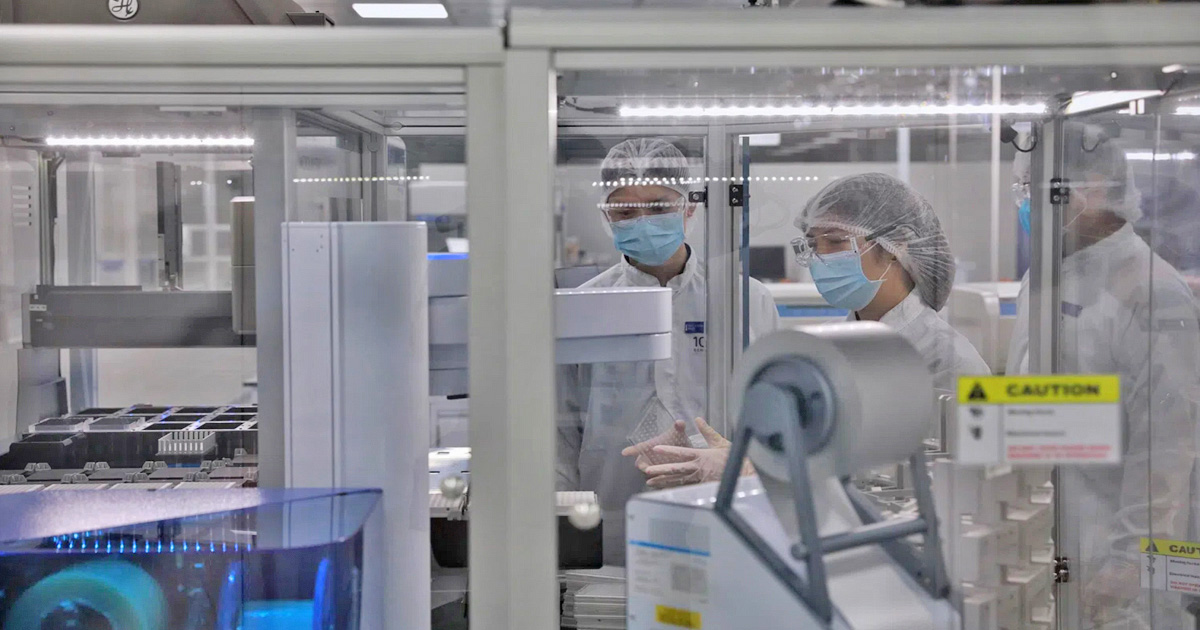: Singapore has a chance to shine in precision medicine

IMAGINE if the medicine prescribed to you could be tailored to your genetic makeup. This would prevent instances of drugs having no effect – or worse, making you sicker.
With precision medicine, this is not merely a matter of imagination. Nalagenetics, a spin-off of the Agency for Science, Technology and Research (A*Star), aims to do just this.
The company is working with the National University Hospital and Raffles Medical Group on something called “pre-emptive pharmacogenomics”. This involves understanding a patient’s genomic profile and cross-checking it with biomarkers, to pre-emptively flag any issues with medication.
Nalagenetics’ digital platform also smoothens the clinical workflow, making the process more efficient for both doctors and patients. All this enables the right treatment to be given to the right person at the right time.
This is just one example of precision medicine – where variations in genes, environment and lifestyle are studied in order to predict disease risk, diagnose disease, tailor therapies and reduce complications. All this improves healthcare outcomes and could even bring costs down.
While the concept is not new, the world is on the cusp of huge leaps in integrating precision medicine-enabling technologies and treatments into healthcare systems.
This is driven by factors such as a dramatic fall in the cost of genome sequencing; the emergence of new therapies that are more targeted and effective, such as genome editing; a rise in diagnostic laboratories; and wider acceptance of new therapies such as messenger RNA vaccines.
Advances in artificial intelligence (AI) are also enabling the analysis of vast amounts of data, speeding up discoveries and validation of new diagnostics and treatment solutions.
The global precision medicine market, valued at US$75 billion in 2023, is projected to grow at an average rate of around 9 per cent a year and reach almost US$180 billion by 2032.
Singapore’s strengths
Singapore’s strengths position it to ride the precision-medicine wave. The country has deep research and development and clinical expertise, strengths in genomics and a burgeoning biomedical industry. It also has a trusted healthcare system that embraces innovative solutions.
As a microcosm of Asia, what the city-state lacks in size, it makes up for in diversity of people. Singapore can develop diagnostics and treatments tailored for various groups of people.
For example, initiatives such as the National Precision Medicine Programme have found that Singaporeans of certain racial backgrounds are more predisposed to premature heart attacks due to familial hypercholesterolemia. From this, we are exploring diagnostics, interventions and treatments tailored to serve these groups.
We can also tackle chronic diseases such as Type 2 diabetes, which is highly prevalent in Asia.
Singapore startup Mesh Bio uses advanced computational biology and AI to analyse multiple kinds of biological data – known as “multi-omic” information – as well as lifestyle factors and other health metrics, then creates personalised health insights. This helps in the prevention, management and treatment of chronic diseases.
To take this further, Mesh Bio took part in the Global Innovation Alliance programme of Enterprise Singapore (EnterpriseSG) in Jakarta. Partnering an Indonesia diagnostics service provider, it has now rolled out its solution and is gaining traction in the market.
Beyond Asia, cancer remains a global challenge. Precision oncology is probably the most familiar branch of precision medicine, and can apply at various points of a cancer patient’s journey: diagnosis, clinical trials or figuring out the right drug-dose combination.
Singapore companies are found along this journey. Lucence offers liquid biopsy tests for cancer detection, treatment selection and monitoring; Oncoshot’s AI-driven platform accelerates the matching of patients with clinical trials; Kyan Technologies integrates AI with biological experiments for personalised treatment.
EnterpriseSG is working with more than 70 home-grown companies directly relevant to enabling precision medicine, helping them strengthen their capabilities and scale up to bring their solutions to the world.
Partnering for progress
While these innovations stem from Singapore’s deep expertise, more must be done to foster company creation, accelerate the growth of startups, and bring innovations to the clinic.
Singapore has already attracted international venture builders and funds such as Accelerator Life Science Partners, Polaris Partners and Flagship Pioneering. EnterpriseSG is also partnering NSG BioLabs to venture-build more precision-medicine companies, particularly those that use AI in drug discovery and development.
Beyond therapeutic biotechnology, there is vast potential for digital technologies to be used in precision medicine. Such technologies can enable pharmacogenomics, offer predictive analysis, or allow for digital diagnostics.
EnterpriseSG is partnering 22Health Ventures to identify digital health startups at an early stage, so that 22Health can provide mentorship and clinical validation, and accelerate their growth overseas.
Multinational corporates, too, play an important role in developing founders and incubating their startups. JLabs is one such example. Launched in Singapore last year, it has on-boarded 16 Singapore-based startups, providing expertise to speed up commercialisation and support fund-raising.
Finally, for precision medicine to make a real difference, its technologies, diagnostics and treatments must be test-bedded and rolled out on a larger scale – not just in Singapore, but to the rest of the world.
EnterpriseSG has been building bridges with international healthcare systems such as Cedars-Sinai and Mayo Clinic in the US, and the Charité–Berlin University of Medicine in Germany, to help Singapore-based startups test their solutions and scale to new markets.
In August, the Precision Health Research, Singapore and the International Health Cohorts Consortium organised a conference in Singapore. Participants flew in from around the world, including Canada, China, Finland, South Africa, Thailand, the UK and the US.
At the event, Singapore stood alongside the top players on the world stage – and as the global industry continues, our companies should continue to do so.
The writer is director for healthcare and biomedical at Enterprise Singapore.
Source: The Business Times © Singapore Press Holdings Limited. Reproduced with permission.

